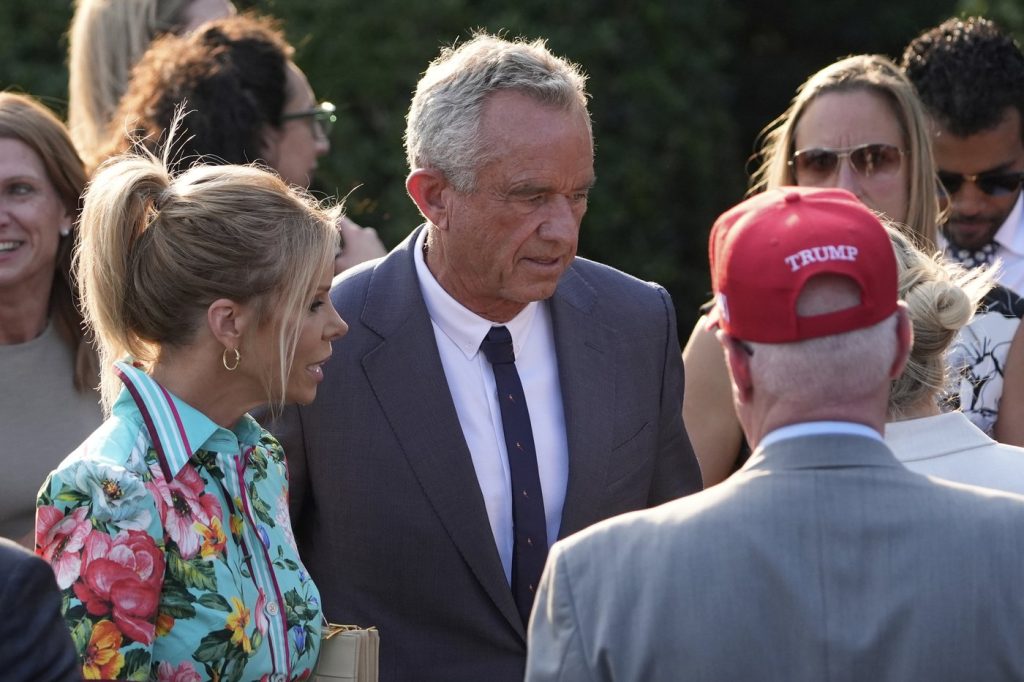TORONTO A group of Canadian doctors and scientists have expressed concern over the recent decision by Robert F. Kennedy Jr., serving as the U.S. health and human services secretary, to dismiss members of the immunization advisory committee that advises the Centers for Disease Control and Prevention (CDC). This decision comes amid ongoing debates about vaccination and public health measures, with Kennedy being a longstanding advocate against vaccines.
Angela Rasmussen, a virologist at the University of Saskatchewan, voiced her apprehensions on Tuesday, stating that Kennedy's move is likely to propagate false anti-vaccine beliefs in both the U.S. and Canada. She remarked, “It creates a culture in which anti-vaxx beliefs are more accepted and challenged a lot less. And also it creates an environment where there’s an alternative to an evidence-based recommendation framework.” Rasmussen highlighted that while the new committee appointments may tailor vaccine recommendations for Americans, the spread of disinformation could lead to increased vaccine hesitancy among Canadian populations as well.
Rasmussen pointed out the current measles outbreaks in both countries as evidence of the detrimental effects of misleading information, which can lead to parents choosing not to immunize their children against preventable diseases. Furthermore, she noted that Canada could be negatively affected if the new advisory committee weakens vaccination recommendations. A potential reduction in vaccine production could result in shortages, as vaccine manufacturers are influenced by the U.S. market.
“There’s a lot of potential for really, really damaging vaccine access throughout the U.S. and potentially around the world because the U.S. market has a big impact on what vaccine manufacturers are actually going to make and manufacture,” Rasmussen added. She emphasized the multitude of ways in which this situation could adversely impact vaccination efforts globally, expressing significant concern regarding the future of immunization.
Rasmussen characterized the termination of the advisory committee members as a continuation of a pattern of anti-public health actions taken by Kennedy. She described the situation as “a death by a thousand cuts,” reflecting on the cumulative impact of such decisions. The skepticism surrounding vaccination has broader implications, particularly as the U.S. has already seen substantial cuts to public health funding under the Trump administration, including billions in research grants at the National Institutes of Health. Moreover, earlier this year, the administration canceled a contract with the mRNA vaccine manufacturer Moderna, which was focused on developing a vaccine for potential pandemic influenza viruses, including H5N1 avian flu.
Dr. Jesse Papenburg, a pediatric infectious diseases specialist at Montreal Children’s Hospital and a member of Canada’s National Advisory Committee on Immunization, although not speaking on behalf of the committee, shared his concerns regarding the broader implications of both the cancellation of the Moderna contract and the removal of U.S. vaccine advisory committee members. He noted that both actions pose threats to the preparedness for potential human-to-human transmission of H5N1 and could hinder the global response to emerging infectious diseases for which vaccines could serve as vital medical countermeasures.
As the medical community watches closely, the implications of these decisions highlight significant challenges within public health and vaccine advocacy across North America. The discourse surrounding vaccinations continues to draw attention, raising critical questions about the future directions of public health policies and the protection of communities against outbreaks of preventable diseases.











